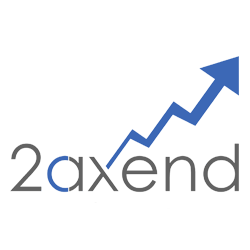Learning Opportunities: Higher Education
While higher ed programs and institutions have made proactive efforts to provide students with a wide range of accommodations, these efforts may not entirely address the needs of disabled students, let alone those who are Deaf and hard of hearing. Consequently, these organizations fail to create wholly diverse, equitable, inclusive and accessible environments. With an emphasis on creating student-centered environments, we will take a deep dive into the fundamental differences between simply providing accommodations and creating equitable, inclusive and accessible environments for Deaf and hard of hearing students.
Participants will leave this workshop with:
- An understanding of potential communication and cultural gaps between Deaf/hard of hearing students and educators;
- An appreciation of how potential communication and cultural gaps may impact inclusion, equity and accessibility initiatives in educational settings; and
- Evidence-based practices and strategies designed to improve the overall experience for Deaf and hard of hearing students.
As Deaf and hard of hearing students have distinct experiences in higher education settings, this workshop will take a deep dive into hard of hearing individuals’ sociocultural experiences and communication preferences, as well as their respective relevance in educational settings and beyond. The presenter will also deliver unique insight and impact enabling teachers, sign language interpreters, support service professionals and administrators to better understand how to adapt accordingly and provide support in a variety of settings.
Participants will leave this interactive workshop with:
- An understanding of the cultural identity journey and communication challenges hard of hearing individuals experience;
- An understanding of the perceived audiological differences between Deaf and hard of hearing individuals;
- Tools and strategies to support hard of hearing consumers’ overarching communication needs; and
- Tips for working effectively with other members of the educational team (e.g., professors, administrators and support staff).
As unconscious biases are created and often reinforced by our environments and experiences, this workshop will explore how potential individual and systematic biases impact Deaf and hard of hearing students. Through Deaf lens, the presenter will map out a variety of best practices for educators to use to identify unconscious biases and provide proactive and strategic support that will make a concrete difference in improving Deaf and hard of hearing students’ educational outcomes.
After this interactive training, participants will:
- Recognize what power and privilege looks and feels like from the perspective of Deaf individuals;
- Understand and apply best practices to determine which privileges to leverage, minimize or divest;
- Apply tips and strategies discussed to hold other educational professionals accountable for their actions; and
- Utilize promising approaches for more open and authentic dialogue with Deaf and Hard of Hearing students.
As interpreting for Deaf and hard of hearing students is not one-size-fits-all, this workshop takes a deep dive into the distinct experiences hard of hearing students face in educational settings and beyond. Exploring potential cultural differences and communication preferences positions educational interpreters to discuss the perceptions of and realities faced when interpreting for both groups of students, as well as hone in on how educational interpreters can provide support to maximize hard of hearing students’ educational outcomes in higher education settings.
Participants will leave this interactive workshop with:
- An understanding of the cultural identity journey and communication challenges hard of hearing individuals experience;
- An understanding of the perceived audiological differences between Deaf and hard of hearing individuals;
- Tools and strategies to support hard of hearing students’ unique communication needs; and
- Tips for working effectively with the educational team (e.g., professors, administrators and support staff).
This interactive workshop explores how professionals in the higher education settings can deliver culturally sensitive and responsive education to Deaf and hard of hearing students. During this workshop, we will take a deep dive into Deaf culture and combine this with practical, real-life stories and situations to help educational professionals better recognize potential implicit biases and cultural differences, as well as how these professionals should react in different situations.
After this workshop, participants will:
- Understand Deaf and hard of hearing students’ sociocultural experiences and their relevance in educational settings;
- Recognize language differences, body language and expressions of emotions;
- Apply techniques and strategies to effectively identify possible challenges Deaf and hard of hearing students may encounter due to cultural and communication differences; and
- Implement strategies to bridge communication and cultural gaps between Deaf/hard of hearing students and hearing students/professionals.
